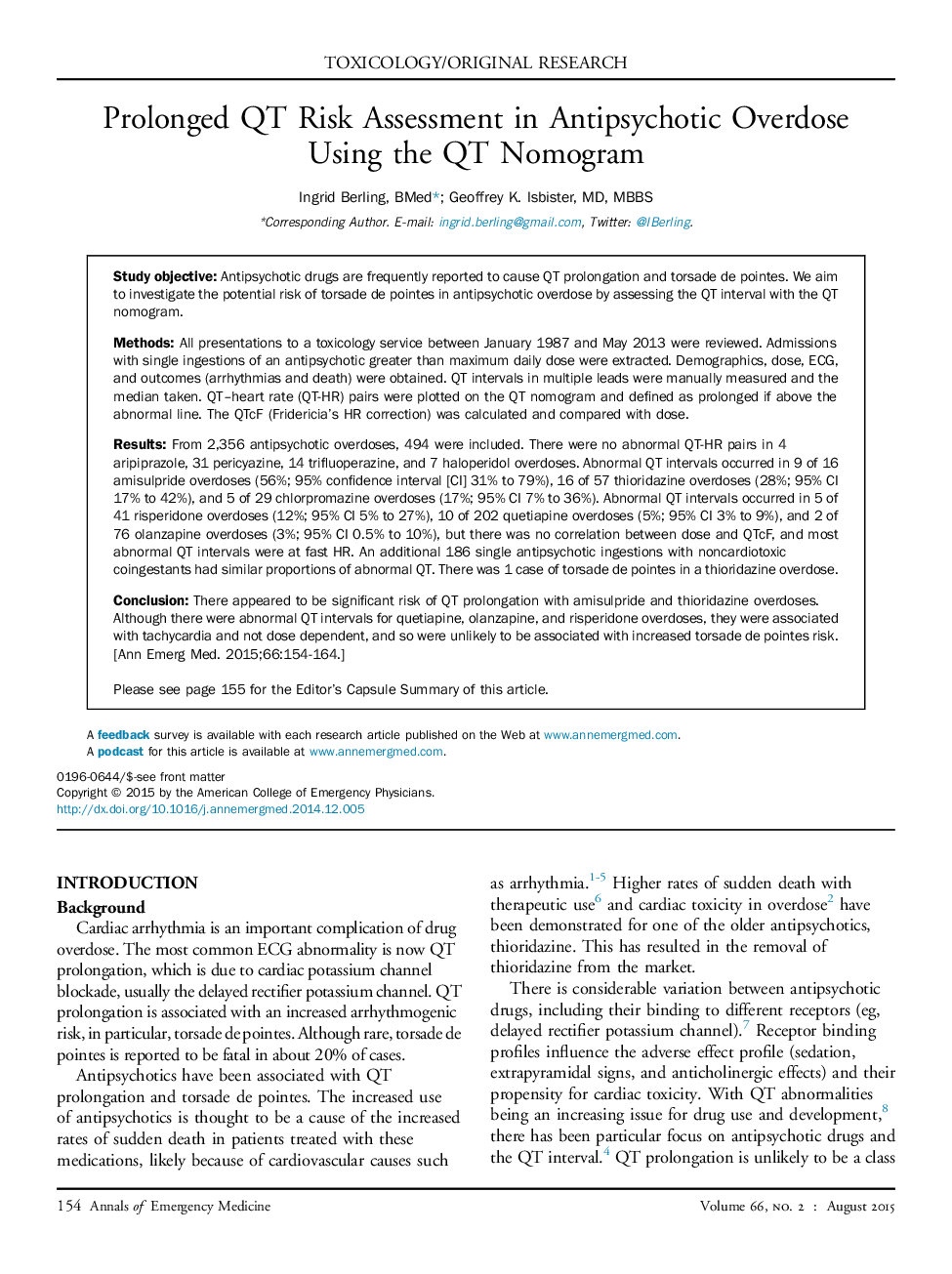| Article ID | Journal | Published Year | Pages | File Type |
|---|---|---|---|---|
| 3228386 | Annals of Emergency Medicine | 2015 | 11 Pages |
Study objectiveAntipsychotic drugs are frequently reported to cause QT prolongation and torsade de pointes. We aim to investigate the potential risk of torsade de pointes in antipsychotic overdose by assessing the QT interval with the QT nomogram.MethodsAll presentations to a toxicology service between January 1987 and May 2013 were reviewed. Admissions with single ingestions of an antipsychotic greater than maximum daily dose were extracted. Demographics, dose, ECG, and outcomes (arrhythmias and death) were obtained. QT intervals in multiple leads were manually measured and the median taken. QT–heart rate (QT-HR) pairs were plotted on the QT nomogram and defined as prolonged if above the abnormal line. The QTcF (Fridericia’s HR correction) was calculated and compared with dose.ResultsFrom 2,356 antipsychotic overdoses, 494 were included. There were no abnormal QT-HR pairs in 4 aripiprazole, 31 pericyazine, 14 trifluoperazine, and 7 haloperidol overdoses. Abnormal QT intervals occurred in 9 of 16 amisulpride overdoses (56%; 95% confidence interval [CI] 31% to 79%), 16 of 57 thioridazine overdoses (28%; 95% CI 17% to 42%), and 5 of 29 chlorpromazine overdoses (17%; 95% CI 7% to 36%). Abnormal QT intervals occurred in 5 of 41 risperidone overdoses (12%; 95% CI 5% to 27%), 10 of 202 quetiapine overdoses (5%; 95% CI 3% to 9%), and 2 of 76 olanzapine overdoses (3%; 95% CI 0.5% to 10%), but there was no correlation between dose and QTcF, and most abnormal QT intervals were at fast HR. An additional 186 single antipsychotic ingestions with noncardiotoxic coingestants had similar proportions of abnormal QT. There was 1 case of torsade de pointes in a thioridazine overdose.ConclusionThere appeared to be significant risk of QT prolongation with amisulpride and thioridazine overdoses. Although there were abnormal QT intervals for quetiapine, olanzapine, and risperidone overdoses, they were associated with tachycardia and not dose dependent, and so were unlikely to be associated with increased torsade de pointes risk.
